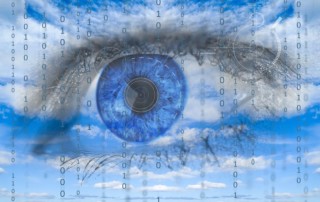Flipside of the Coin: The Effect of Cash on Spending
In many countries, most transactions are still made in cash. Yet, keeping cash in your wallet can be quite cumbersome. Notes are light and easy to carry, whereas coins are heavy and bulky. Does the inconvenience of carrying coins have an effect on how easily we spend them?
Don’t Look at Me: Why We Dislike Being Observed in the Pre-Decisional Stage
Our decision making is subject to more pervasive observation than ever due to technologies that companies use to understand our offline and online activities — even before we make a purchase. Our research finds that consumers are particularly averse to being observed while they construct their preferences. Consumers feel that their sense of autonomy is threatened and distort their behaviors significantly in order to evade being observed.
Words Matter for Life: How Language Can Influence Suicide Behavior
Languages influence perceptions and decision-making. We highlight one of the most important linguistic features – Future Time Reference. FTR impacts speakers’ behaviors involving intertemporal considerations, even the most critical decision on life – suicide.
Stop Chasing the Past: Improving Investment Decisions with Social Disclaimers
Mutual funds cannot consistently return better-than-average performance. Yet investors often pick their mutual funds based on past performance. Researchers Leonardo Weiss-Cohen, Philip Newall and Peter Ayton conducted a long-term Think Forward Initiative research project that sought to answer how their investment decisions could be improved.
No Data, No Drama: How Behavioral Science Can Help the Banking Industry
With most of its attention captured by the global fervor around 'big data', the banking industry has failed to give behavioral science the attention it deserves. I argue that, considering today’s challenges to fully take advantage of big data, implementing insights from behavioral science is a more cost-effective approach to improve customer experience in banking.
My Savings Buffer Is More Than Yours
It is no secret that too few households save for a rainy day and this financial planning problem is a difficult habit to break. Would knowing your neighbours’ savings balance encourage you to save more?







